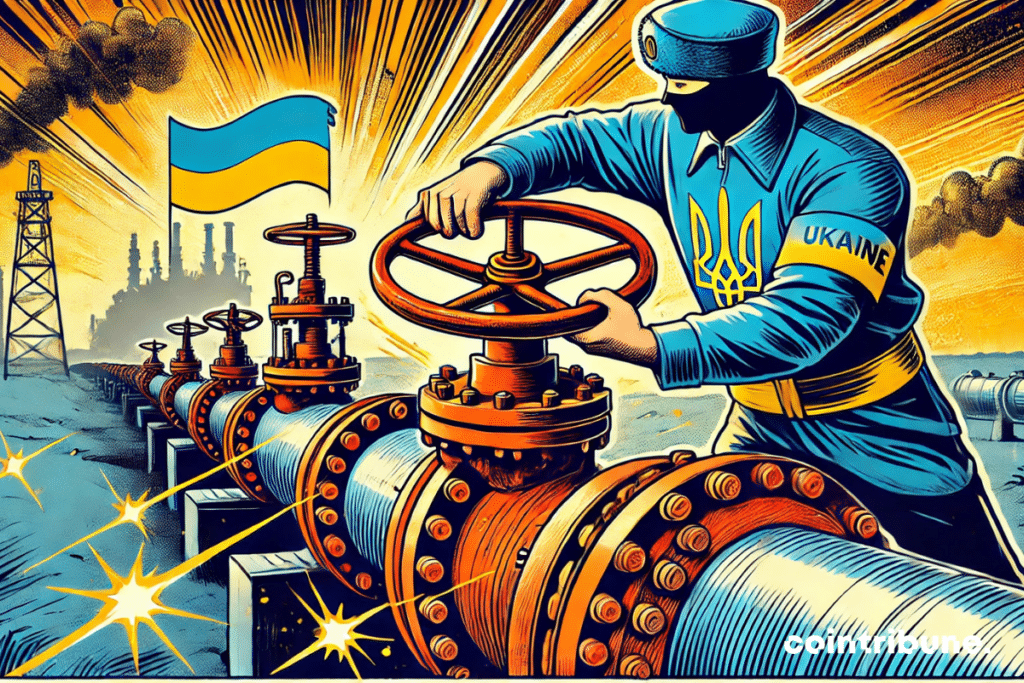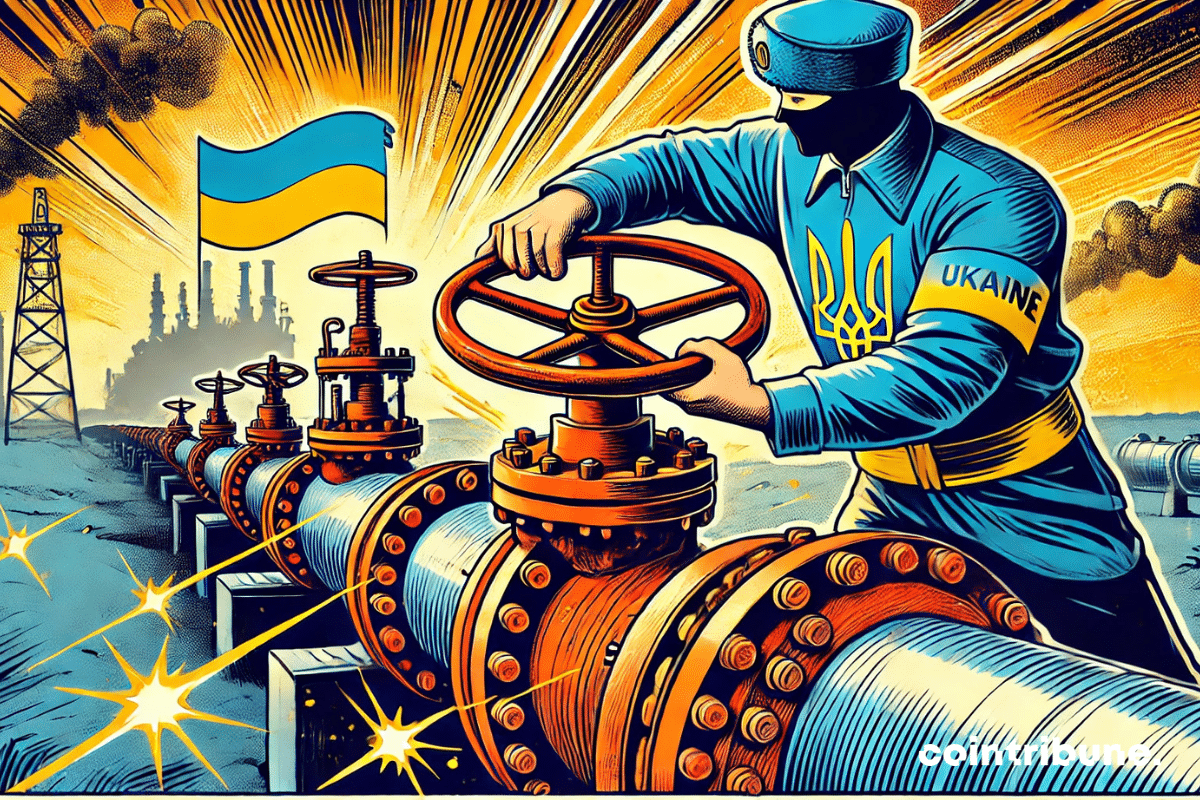19h42 ▪
3
min read ▪ by
Ukraine is preparing to close a strategic route for the transit of Russian gas to Europe as early as January 2025. Certainly, this decision proves symbolic in the ongoing energy war. Nevertheless, it could have major impacts on the economy of several European countries.


The cessation of gas transit: an economic and energy crisis for Eastern Europe?
The announcement from the Ukraine to cut the transit of Russian gas particularly worries the economies of Slovakia, Moldova, and Hungary. Heavily dependent on Russian imports, these countries risk seeing their energy bills soar.
- In 2023, Slovakia covered 65% of its gas needs through this corridor.
- Moldova, already in a state of energy emergency, still relies on Russian resources for 70% of its electricity.
For these countries, shortages and rising gas prices could exacerbate an already critical economic situation.
Russia and Ukraine: an expensive showdown for the economy
For Russia, this transit represents a crucial financial windfall of $6.5 billion per year. Its removal will weigh on strategic investments, particularly military ones. For its part, Ukraine will lose hundreds of millions of dollars in transit revenues. This further complicates its public finances.
This cessation could also redistribute the cards of European energy strategies. Certainly, the European Union has reduced its imports of Russian gas to less than 10%. However, some nations, like Austria, have recently moved on from their historic contracts with Gazprom and prefer diversified supplies.
Towards a new European energy strategy?
While some states like Hungary downplay the impact of this cut on their economy thanks to TurkStream, others, like Slovakia, do not have the same leeway. Europe will need to step up its diversification efforts and investments in alternative solutions to avoid a crisis in energy supply.
According to analysts, the gradual reduction of European dependence on Russian gas must be accompanied by a overhaul of national energy policies. In any case, key figures show that this transition will cost billions.
Effective from January 2025, this decision highlights the resilience of certain countries. But that’s not all! It also reveals the vulnerabilities of the economy of Europe in the face of a global energy crisis.
Maximize your Cointribune experience with our “Read to Earn” program! For every article you read, earn points and access exclusive rewards. Sign up now and start earning benefits.


Je m’appelle Ariela et j’ai 31 ans. J’oeuvre dans le domaine de la rédaction web depuis maintenant 7 ans. Je n’ai découvert le trading et la cryptomonnaie que depuis quelques années. Mais c’est un univers qui m’intéresse beaucoup. Et les sujets traités au sein de la plateforme me permettent d’en apprendre davantage. Chanteuse à mes heures perdues, je cultive aussi une grande passion pour la musique et la lecture (et les animaux !)
DISCLAIMER
The views, thoughts, and opinions expressed in this article belong solely to the author, and should not be taken as investment advice. Do your own research before taking any investment decisions.










